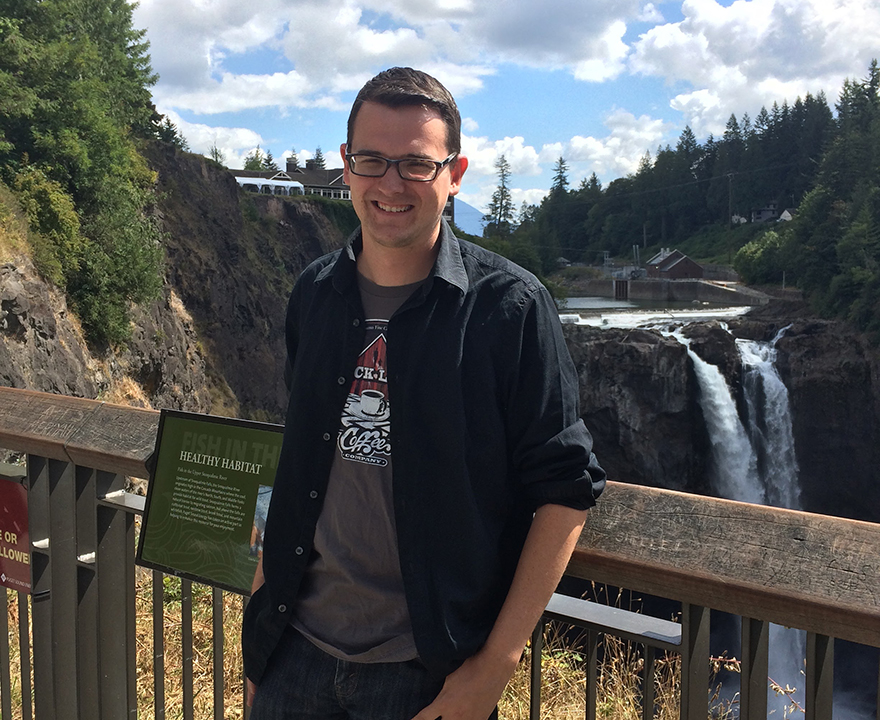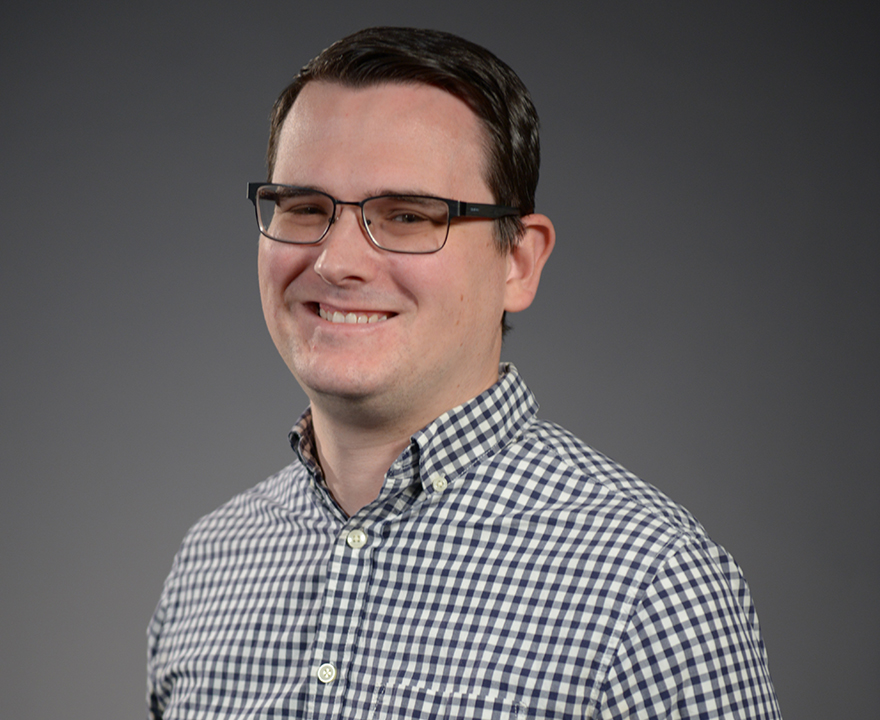The resiliency of beliefs

The resiliency of beliefs
- February 22, 2019
- Ph.D. student Colin Bernatzky, sociology, studies how beliefs persist in the face of contrary evidence
-----
 When Colin Bernatzky first entered UC Irvine’s Ph.D. program in sociology, he had
a good idea of what he would study. There was a recent outbreak of measles at Disneyland
and the substantial number of those who had contracted the disease had not been vaccinated.
This got him thinking about the rise of vaccine skepticism and the ways in which beliefs
persist in the face of disputed or contrary evidence.
When Colin Bernatzky first entered UC Irvine’s Ph.D. program in sociology, he had
a good idea of what he would study. There was a recent outbreak of measles at Disneyland
and the substantial number of those who had contracted the disease had not been vaccinated.
This got him thinking about the rise of vaccine skepticism and the ways in which beliefs
persist in the face of disputed or contrary evidence.
But then the 2016 election happened. “We have reached a new level of polarization and conflicting information,” Bernatzky says about the broader cultural shift since that time. “My research interest has exploded into something that is discussed almost every day.” And while there is perhaps some solace in the relevance of the issue, he admits, “It’s hard not to feel overwhelmed by the magnitude of it.” Plus, it can be hard for him to separate his personal life from his academic one. “When I turn on the TV, I think, there it is again, my research interests haunting me,” he says laughing.
While his master’s thesis focused on the anti-vaccination movement, Bernatzky plans to broaden his research to other areas of belief persistence for his dissertation. He’s interested in the circumstances that generate unorthodox beliefs and the conditions in which these beliefs might be revised.
“Understanding where people are coming from is the crucial first step,” says Bernatzky. “Polarization didn’t take place overnight. Before we can have any meaningful chance to bring people back together, we first have to understand the factors and appeal that caused someone to come to that conclusion in the first place.”
The sociological imagination
When asked where the origins of his research interest came from, he jokes that he wishes he had a touching story from childhood to point to as inspiration. Instead, it seems that it’s his pursuit of new experiences, combined with a passion for making positive change, that has shaped his path.
In many ways, Bernatzky’s attraction to sociology coincides with his exposure to different cultures and different ways of thinking. After high school, he traveled to Ecuador with a non-profit organization, where he learned about the environmental and human effects the oil industry had on indigenous people in the Amazon.
“The Sociological Imagination by C. Wright Mills talks about the capacity to see one’s life experiences as part of the wider social fabric. This was something that really clicked for me during this trip. I knew going in that I was going to be upset with oil companies, but then I discovered that the T-shirts the organization had made came from sweat shops. We wanted to shed light on one cause of suffering and yet we had blinders on to other causes,” he says.
Bernatzky received his B.A from Vassar College, where he double majored in sociology and religion. He studied abroad in India where he studied Buddhist theories of structural inequality. He also participated in anti-poverty work ranging from volunteering in soup kitchens to student-led lobbying trips to Washington, D.C.
Before pursuing graduate school, he worked as a paralegal, grant writer and traveled to six continents. He produced a documentary called Standing Up about three unlikely aspiring stand-up comedians. The film is making the rounds in the film festival circuit just as the public’s interest in stand-up comedy is on the rise. In film, as in sociology, Bernatzky’s timing is impeccable.
Ultimately, it was his work as a grant writer for the Osborne Association, a criminal justice nonprofit based in NYC, that solidified Bernatzky’s commitment to pursue graduate school. This inspiration was twofold: first, he attended a conference about effective criminal justice messaging strategies held by the FrameWorks Institute, an organization whose research would lead Bernatzky to become interested in the work of UCI professors such as David Snow and Francesca Polletta. Second, he was tasked with writing a white paper about the growing aging prison population. Following the release of the white paper—which was referenced in the New York Times and The Nation—the Osborne Association was able to convene a task force on the issue and received funding for a pilot study to help aging people transition out of prison.
“This experience had a tremendous impact on my life,” he says. “It was motivating to see policy recommendations I helped write eventually result in something tangible.”
Bernatzky has indeed continued these efforts at UCI, where he was a member of the research team that gathered cost data and conducted interviews with over 250 individuals experiencing homelessness in Orange County in order to better understand the causes and consequences of homelessness in the area. This project culminated in a report that served as the basis for a new initiative to end homelessness launched by the United Way of Orange County.
An open road
Even Bernatzky’s decision to attend UCI was partly based on the road not taken.
“I’m from Massachusetts and I thought, given the chance between staying close to home or moving across the country, moving would be a good way to experience a new part of the country and cultivate personal growth.”
At UCI, Bernatzky has gained a lot of research experience working with faculty. In addition to his work on homelessness and belief persistence, he’s involved with projects examining radicalization on the internet and messenger credibility of social movements, utilizing qualitative, quantitative and experimental methods. He’s currently in his fourth year and has already published several articles and book chapters and has more under review.
If all this wasn’t enough, he’s also serving as a Pedagogical Fellow for UCI’s Division of Teaching Excellence and Innovation.
“When I arrived at UCI, I didn’t know how invested I would become in being an effective teacher, but now it’s one of my top priorities,” he says. “The liberal arts experience I had as an undergrad was really valuable for me, so I love being able to channel some of that ethos into my role as a TA and instructor.”
Bernatzky’s efforts have not gone unnoticed.
“Colin is very conscientious, has a keen curiosity, and is obviously smart. Plus, he’s an excellent interviewer. He has an easy-going, non-threatening demeanor that puts people at ease. I’ve mentored a lot of graduate students over forty years of teaching and I can say that Colin is in the very top tier of grad students with whom I’ve worked. As a consequence, I have high expectations for his professional future and career,” says Bernatzky’s advisor and distinguished sociology professor David Snow.
If what Bernatzky has on his plate wasn’t exhausting enough, he’s also training for his third half marathon. And as far as that last continent he has yet to travel to?
“Traveling to Antarctica involves flying to Argentina and traveling by boat for days. It’s a trip that’ll probably have to wait till after I finish the Ph.D.,” he says.
-Jill Kato for UCI School of Social Sciences
-----
Would you like to get more involved with the social sciences? Email us at communications@socsci.uci.edu to connect.
Share on:
Related News Items
- Careet RightUCI sociologists earn American Sociological Association honors, leadership roles
- Careet RightMultiple honors for UCI soc sci's Maricela Bañuelos
- Careet RightAttending the National Conference for Black Political Scientists
- Careet RightA lesson in solidarity
- Careet RightUCI sociologists are making their mark


